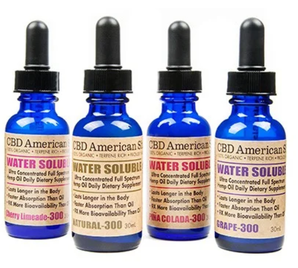A complaint claiming CBD American Shaman wrongly marketed its wares as not having heavy metals “raises more doubts than it addresses,” one lawyer notes. However, it also reflects the obstacles faced by CBD firms trying to distinguish themselves from rivals without entering into lawful hot water. The case is the current in a set of lawsuits lodged against CBD brands in recent times, some commenting on differences between claimed and real levels of CBD or other cannabidiol; some concentrating on unsubstantiated safety claims; and several challenging the legal status of drugs, since the FDA says this is not legitimate to add CBD to foods, drinks or treatments as it was initially investigated as a drug.
Plaintiff Michael Davis claims in a complaint filed in Florida on May 4 that CBD American Shaman “intentionally sells its goods as ‘all natural’ and as without hard metals or pesticides,” quoting test findings from ProVerde Laboratories indicating ‘PASS’ results for numerous pollutants. After submitting CBD American Shaman goods to the very same laboratory for examination, Davis obtained results showing that some items were well over the limits for toxic metals, like lead, copper, and nickel. “It implies that the drug not only does contain contaminants (as opposed to the arguments of the defendant), and also that there is such a quantity that the lab check fails to find. Lab tests for essential oils provided to the complainant by ProVerde reportedly also indicated yeast and slime concentrations three times higher than that of the thresholds of ProVerde (even though CBD American Shaman makes no allegations on the packaging except for the exclusion of mold / yeast).
Plaintiff’s attorneys are sending CBD products off for testing

Neither the CBD American Shaman nor ProVerde Laboratory (which is not mentioned in the complaint as a plaintiff) replied to queries for comment on the case, which illustrates the vulnerability of companies functioning in a marketplace without consistent consistency, health and labeling requirements, said Greg Kaufman, a partner at Eversheds Sutherland law firm.
Due to the scarcity of scientific information and the threat of legislative scrutiny, creating medical claims about CBD is dangerous, so many manufacturers are outlining quality requirements instead, said Kaukman, who will communicate at FoodNavigator-USA.
In certain instances this means providing customers access to laboratory samples to prove that you’re checking for items like molds, pesticide extracts and hard metals, he added, which could draw unnecessary scrutiny if the plaintiff’s lawyers submit test goods and find inconsistencies between their findings and yours.
On the other hand, even though the manufacturers make no clear statements (‘pesticide-free,’ ‘no heavy metals’) and the attorneys of the complainants run their independent tests and discover pollutants, customers ‘will still have cases based in the argument that they are not conscious of the health hazards connected with obtaining these items, including contaminants.’
Eventually, prosecuting a case with conflicting laboratory reports “would really test party and laboratory credibility,” he said. “Whose test had been correct? Will the product be put to the test again? Is the brand in a position to have comparable tests checked again? Did the accused or the complainant contaminate the substance prior or following the test? So many things left questionable and none justified.